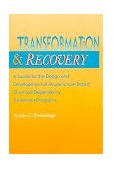Resources for Acupuncture in Chemical Dependency Treatment and Recovery

So this should be viewed as
the client's personal and sacred space, a time for them to be inward and
undistracted by outside noise and activity and the "pressure to perform"
that often characterizes other therapeutic interventions.
In the optimum setting, therefore, clients are sitting quietly. Acupuncture is unique among the services offered at a drug treatment program in that it is "non verbal." This is also one of its greatest advantages (as described at length in the book Transformation and Recovery.)
Some clients may choose to read or quietly chat with one another while they are being treated, and some clinics have soothing music playing in the background. "Purists," however, would argue that all of these external activities and sounds will lessen the therapeutic value of the treatment. Most clinics have a sign on the wall saying "Acupuncture works best in a quiet setting".
previous
- Read FAQs in Sequence - next
Index of Articles - Links - Home
Scroll Down for More "Frequently Asked Questions"
How many clients can be treated at once?
How often do clients need to be treated?
How long to clients have to keep having treatments?
Does it matter what time of day the acupuncture is provided?
What
national organizations support acupuncture in treating addiction? What
resources are available to support us if we decide to do it?
Does
the acupuncture program have to include herbs or nutritional supplements?
What
is the history of how acupuncture began to be used in chemical dependency
treatment?
What
does the acupuncture clinic look like exactly?
How
much space and extra equipment will we need to do it?
How
do we clean or dispose of the needles after they are used?
How
does acupuncture fit with drug testing?
How
do we find and train people to do the needling?
Could
we just try it experimentally to make sure it's a good fit for us?
What
technical assistance will be required to start and maintain an acupuncture
component?
Is
it compatible with harm reduction?
Is
it compatible with 12-Step or abstinence-based treatment approaches?
Is
it appropriate for mandated or court-referred clients?
Is
it appropriate for adolescents?
Is
it appropriate for pregnant women?
Is
it appropriate for people with co-morbid psychiatric problems?
Is
it appropriate for people with HIV/AIDS?
Is
it appropriate in methadone programs?
Is
it appropriate in residential programs?
What
training is required for current program and administrative staff?
What are the steps we should take to add an acupuncture component?
